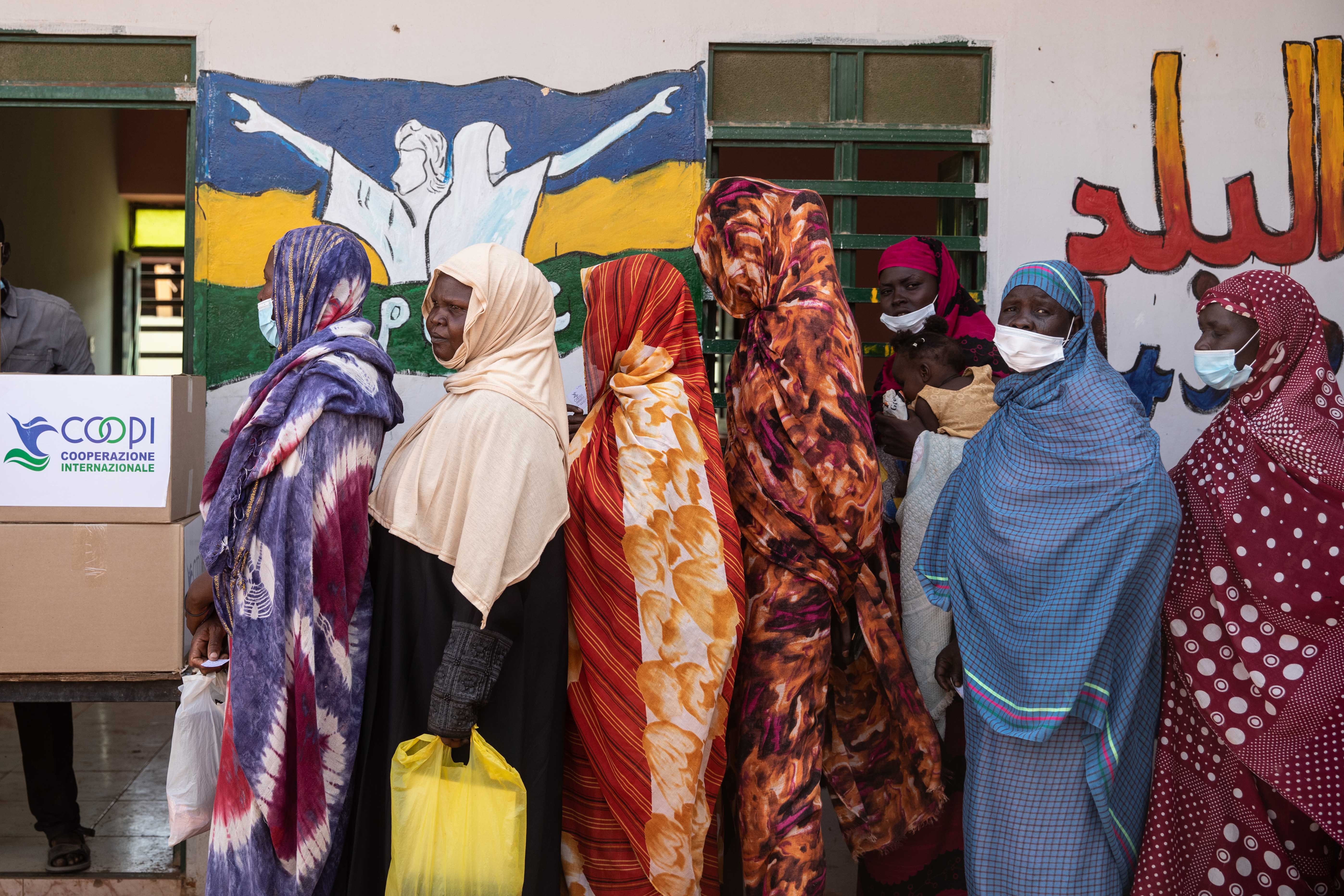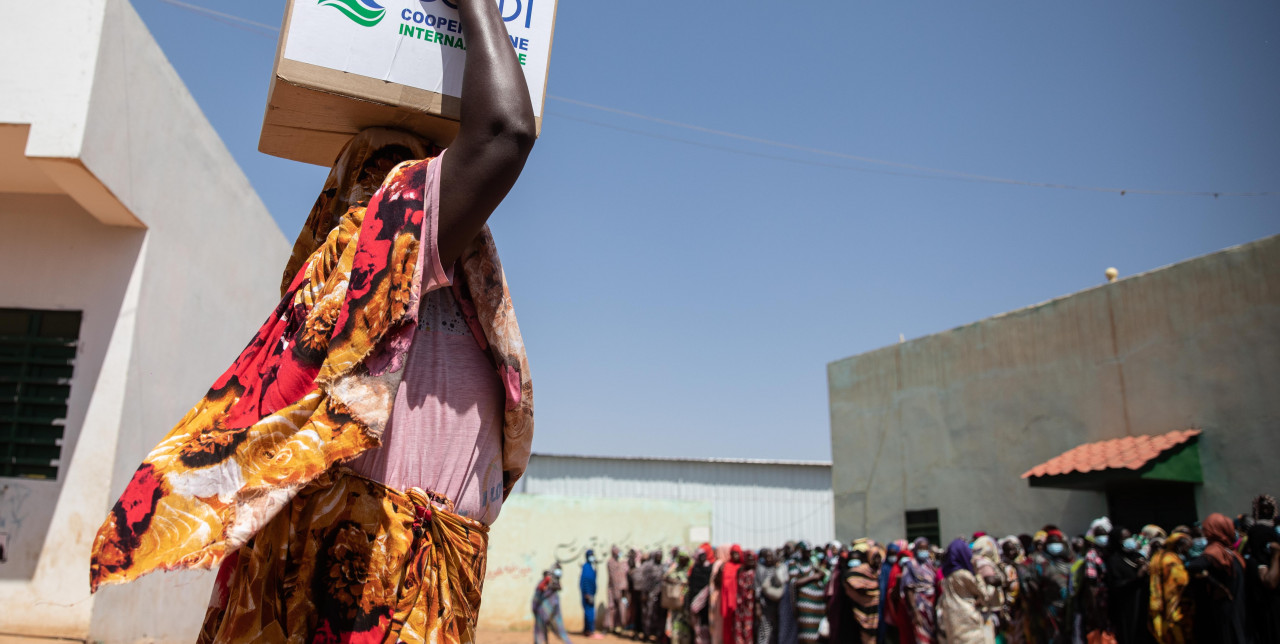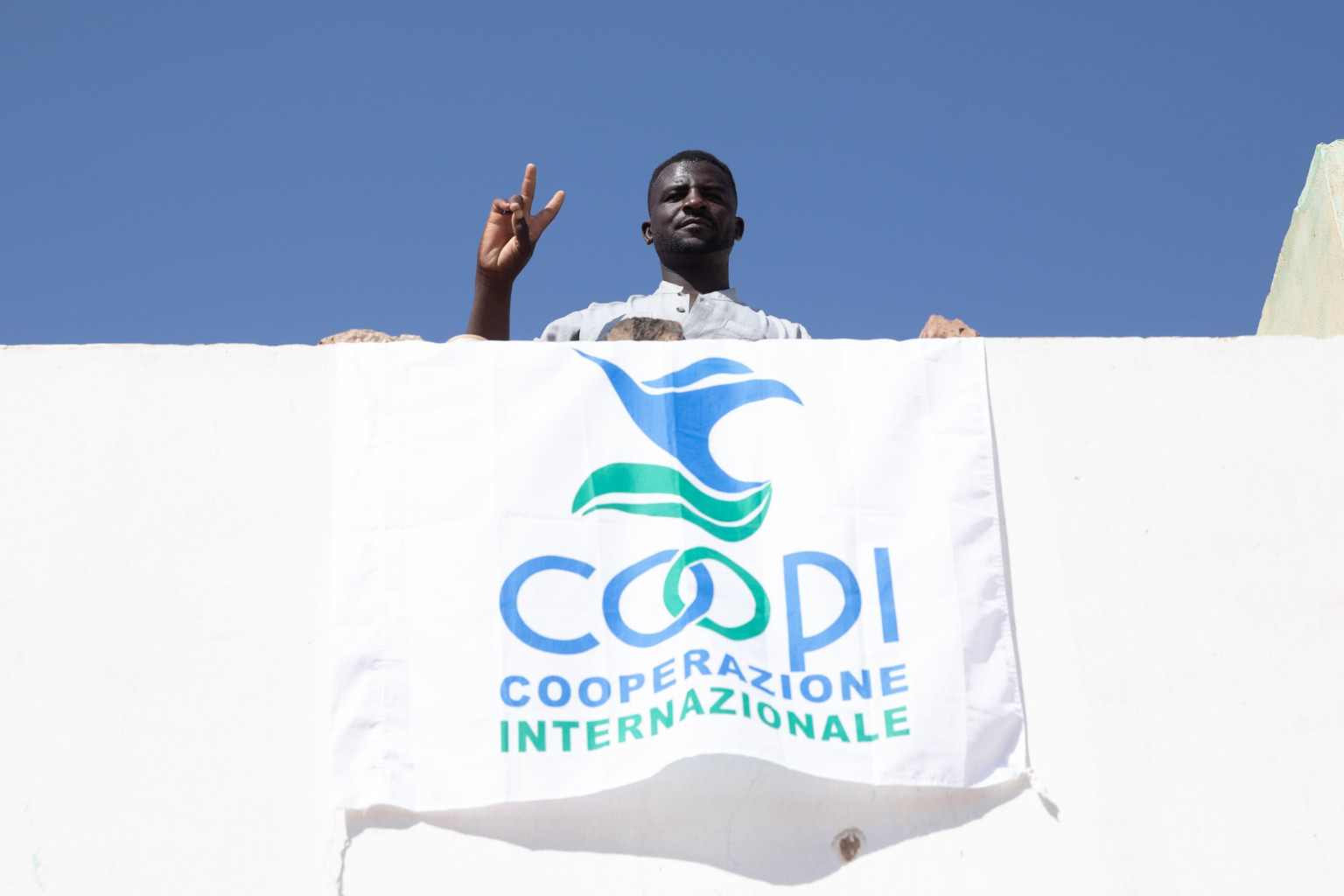30-11-2020 | di COOPI
Sudan, Covid-19. COOPI distributes 1,000 food baskets
On the 19th and 20th September, COOPI – Cooperazione Internazionale urgently distributed 1,000 family food baskets to the most vulnerable households of Mayo, a large settlement of IDPs refugees and applicant asylum seekers in the southern outskirt of Khartoum, to mitigate the economic effects of Covid-19 pandemic in terms of food access. The food distribution was funded by the Italian Agency for Development Cooperation (AICS) in the framework of the project “Emergency water and hygiene, strengthening the resilience of the most vulnerable communities in Mayo area, Khartoum”.
1,000 families among the most vulnerable of the area received a food basket composed by beans, lentils, sorghum flour, peanut butter, oil, salt and rice, as the most common and nutrient food of the Sudanese diet.
It was the first round of a 4-month family food assistance intervention and it took place a month after a Not Food Item (NFI) distribution coordinated by the Shelter and Non-Food Items (SNFI) cluster and implemented by COOPI in the same area. The project is aiming at promptly respond to the COVID 19 emergency and its related issues on Food Security, Sanitation and Hygiene, and to mitigate the effect of rainy season which every year - especially in Mayo due to its planimetric characteristics - heavily hit houses and tents of the resident population.
The community has been actively involved through a participatory approach during the whole process. Data collectors from the community itself have been properly trained and monitored by COOPI Community Mobilizers on how to identify the most vulnerable bracket of population. And thus, depending on: household size (number of children), households with members with disabilities or affected by chronicle diseases, women-headed households; households with refugees, IDPs and/or returnees, flood-affected households.

Distribuzione alimentare, Karthoum. ©Roger Anis
Focus group discussions with the local committees facilitated the direct involvement and engagement of our beneficiaries, while the constant dialogue with local authorities and the Khartoum Humanitarian Aid Commission (HAC) opened a channel for further discussions and needs assessment.
COOPI ‘s commitment in Mayo is part of a larger Program in the area intending to develop a Community Based Disaster Risk Reduction Plan, through capacity building, WASH and Livelihood interventions in order to strengthen the resilience of one the poorest area of the country, just outside the suburb of its capital.
As the economic crisis scales up in Sudan, humanitarian needs continue to increase. The socio- economic impact of COVID 19 is harshly hitting an already impoverished population. Queue for bread and other basic needs are everywhere in the country and in its capital Khartoum.
Cover Photo by Roger Anis




 Sudan
Sudan
